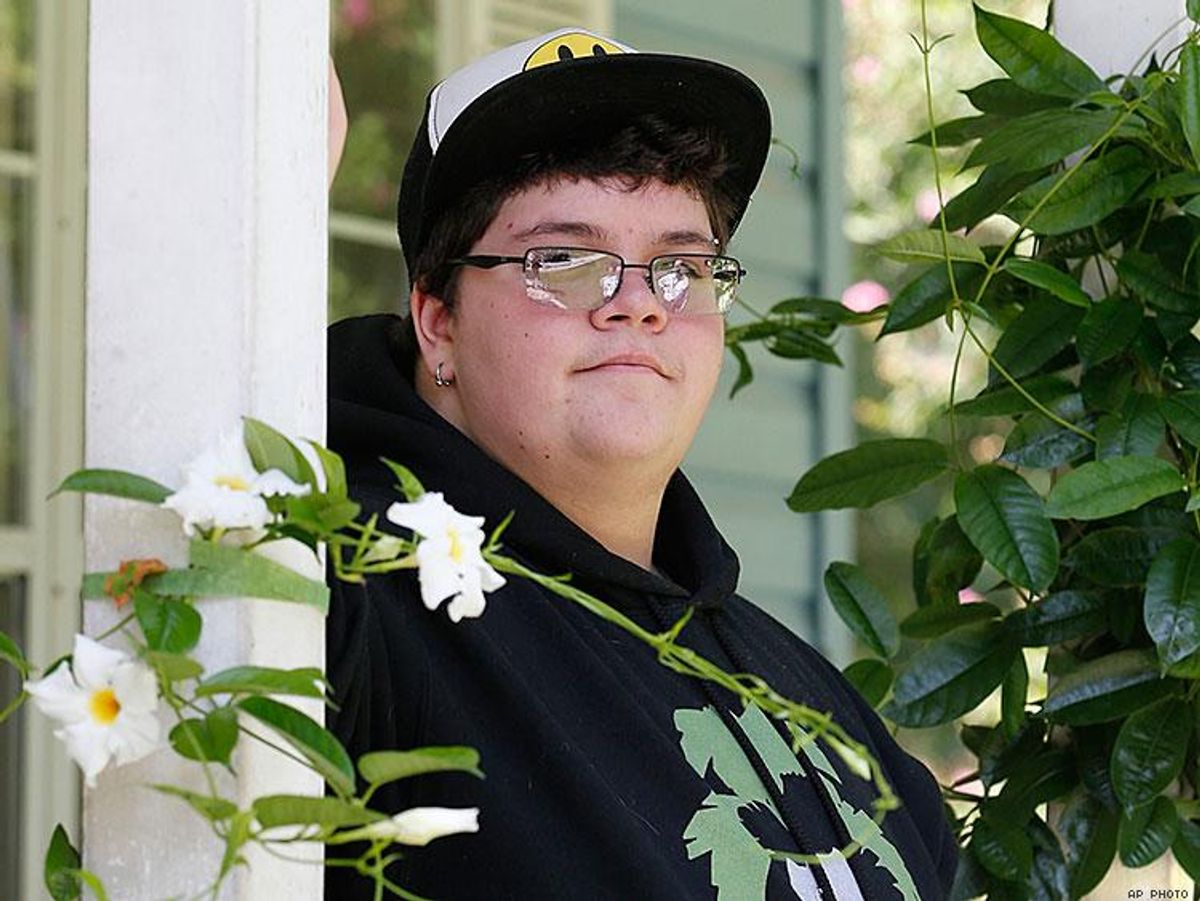Gavin Grimm, the courageous transgender teenager who stood up to challenge his school's mistreatment of him, will have his day in court. Last month, for the first time, a federal appeals court ruled that a public school must comply with the U.S. Department of Education's policy that a transgender boy be treated like all other boys in the school, including being given access to the boys' restroom. On April 19, the U.S. Court of Appeals for the Fourth Circuit ordered a trial judge to reinstate Gavin's claims of discrimination under Title IX, the provision of federal law that prohibits discrimination on the basis of sex in education. The Fourth Circuit also ordered the trial judge to reconsider whether Gavin should be allowed to use the boys' restrooms at school while the lawsuit continues.
In support of Gavin, we filed an amicus ("friend of the court") brief in the Fourth Circuit on behalf of leading medical and mental health associations, outlining current research and consensus on the support that all teenagers need to successfully transition to adulthood. This research isn't groundbreaking, and it doesn't really tell us anything that most people who have survived high school don't already know. But the research does make undeniably clear that schools -- and all public facilities -- must support transgender individuals by giving them access to the restroom that corresponds to their gender identity. In short, transgender boys must be treated as boys and transgender girls must be treated as girls.
The central position of schools, administrators, and teachers in teenagers' lives uniquely positions school officials to either reinforce discrimination or dismantle it. When teachers and administrators enforce policies of stigmatization, transgender students suffer. Every day at school, adolescents undertake the developmental task of consolidating their identities by interacting with their peers, evaluating the physical or social appearance they present to others, and experiencing responses to a wide array of emotions. Because the opinions of peers are of such paramount importance to youth, any exclusion or differential treatment can have tremendous and long-lasting psychological repercussions. Positive peer relationships in adolescence are linked to positive psychosocial development, including better self-image and better school performance.
It is not news that transgender people experience significant discrimination and negative stereotyping. A recent survey of transgender individuals living in Virginia -- Gavin's home state -- found that almost 50 percent of survey participants had experienced discrimination in health care, employment, or housing, and many had experienced discrimination in more than one area. Participants who became aware of being transgender at an earlier age faced greater discrimination. Over one-third of participants had negative experiences in high school.
The Fourth Circuit's opinion comes at the same time that transgender people face some of the most pernicious legislative backlash in recent history. House Bill 2 in North Carolina and the so-called religious freedom law in Mississippi are abysmal laws, as are many others being introduced throughout the country. They encourage and in many instances require overt discrimination against transgender people and the broader LGBTQ population. They are disheartening displays of ignorance, fear, and bias.
But the public reaction to these laws is instructive and encouraging. North Carolina's HB2, for example, has been widely condemned, including by President Obama and businesses as diverse as Apple, Google, American Airlines, and Starbucks. This widespread support of LGBTQ individuals reveals these discriminatory laws for what they really are: ugly backlash to the progress already made by the LGBTQ community and the inevitable move toward greater protection of transgender people's basic rights.
The understanding that transgender students need the same emotional support at school as other students has already begun to permeate policy-making. Numerous states, including Connecticut, Iowa, Massachusetts, New York, Washington, and the District of Columbia, along with many more municipalities, have adopted policies requiring schools to affirm transgender students' gender identity in all aspects of the school environment, including by providing students with access to the appropriate restrooms. The U.S. Department of Education, charged with the critical task of promoting student achievement and "prohibiting discrimination and ensuring equal access to education," has adopted just such a position.
In developing best practices to ensure fair treatment and equal access to education for transgender students, the DOE has deferred to the overwhelming consensus of current social science. Stigmatization and discrimination lead to predictable and measurable negative outcomes for students suffering that discrimination. Any student isolated in a separate restroom would feel stigmatized and harmed. Transgender students are no different. Forcing a transgender boy to use a separate restroom serves as a constant reminder to that student -- and also to that student's peers -- that the school views him as different from all of the other boys at the school. Given schools' importance as a locus for peer relationships, social bonding, and adolescent development, the only appropriate conclusion for the DOE to reach was that schools must affirm transgender students' gender identity in all aspects of school life, including their use of restrooms.
Compare this best-practices approach to that taken by the Gloucester County School Board in response to Gavin's previously uncontroversial use of the boys' restrooms at school. The school board put Gavin's basic rights and dignity to a vote. In a circus of a meeting infected by alarmist community members tainted by bias, the school board incited and acquiesced to this discrimination, enacting a policy that singled out for disparate treatment individuals with "gender identity issues," a barely concealed attack on transgender individuals.
The Fourth Circuit confirmed the scientifically informed policy of inclusion and support set by the DOE. The court's decision provides an important precedent for all schools because it affirms their obligation to promote welcoming environments for transgender students. Capitulating to mob mentality at the expense of students' well-being is not acceptable.
The decision does not end the legal battle, nor will it silence the opponents of treating transgender people with basic fairness and dignity. No doubt we will see further last-ditch efforts to enshrine transphobic discrimination into law. But Gavin's case will continue, and it will hopefully guide lawmakers to adopt policies that ensure the equal treatment of transgender people. In the meantime, schools should adhere to the dictates of the Fourth Circuit's decision and affirm transgender students' gender identity in all aspects of school life, including their use of restrooms.
JENNIFER LEVI is the transgender rights project director at GLBTQ Legal Advocates & Defenders. MARY K. DULKA is a partner at Goodwin Procter LLP. The views and opinions expressed herein are the personal views of the author and do not reflect any official opinion of Goodwin Procter. CHRISTINE DIETER is an associate at Goodwin Procter LLP. The views and opinions expressed herein are the personal views of the author and do not reflect any official opinion of Goodwin Procter.


















































































